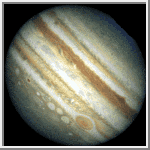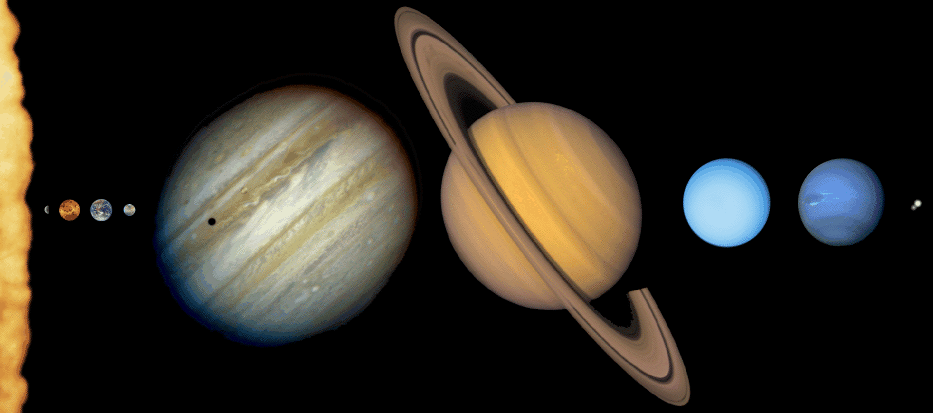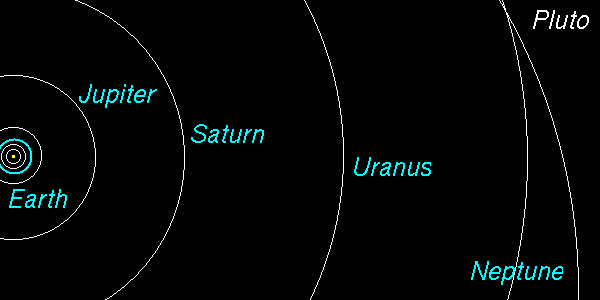The Jovian Planets
Jupiter, Saturn, Uranus, Neptune

They are big:
- Jupiter: 11 R_E
- Saturn: 9 R_E
- Uranus: 4 R_E
- Neptune: 4 R_E

Some of them rotate fast:
- Jupiter: 10 hours
- Saturn: 10 hours
- Uranus: 17 hours; axis tilted, approximately in plane of orbit.
- Neptune: 16 hours
Their densities are low:
- Jupiter: 1300 kg/m^3
- Saturn: 700 kg/m^3
- Uranus: 1300 kg/m^3
- Neptune: 1600 kg/m^3
The low densities suggest that these planets are mostly made of gas.
They are cold at their cloud tops:
- Jupiter: 160 K
- Saturn: 90 K
- Uranus: 60 K
- Neptune: 60 K
Low temperature at start of solar system would allow
- ices to form
- water, H_2O
- methane, CH_4
- ammonia, NH_3
- carbon dioxide, CO_2
- gasses to be attracted by gravity to a central core planet more easily.
- This fits with the low density.
- Available gasses are H and He.
- And of course "rock" is also available.
We should learn something about the
physics of gases.
Davison E. Soper, Institute of Theoretical Science,
University of Oregon, Eugene OR 97403 USA
soper@bovine.uoregon.edu



